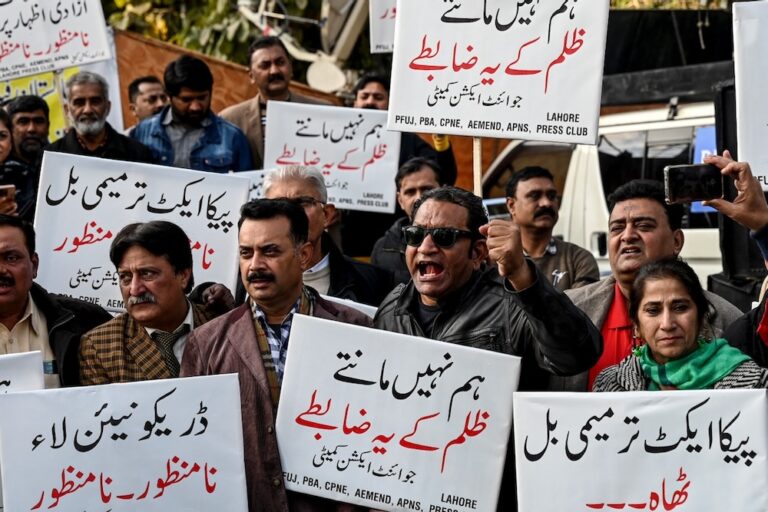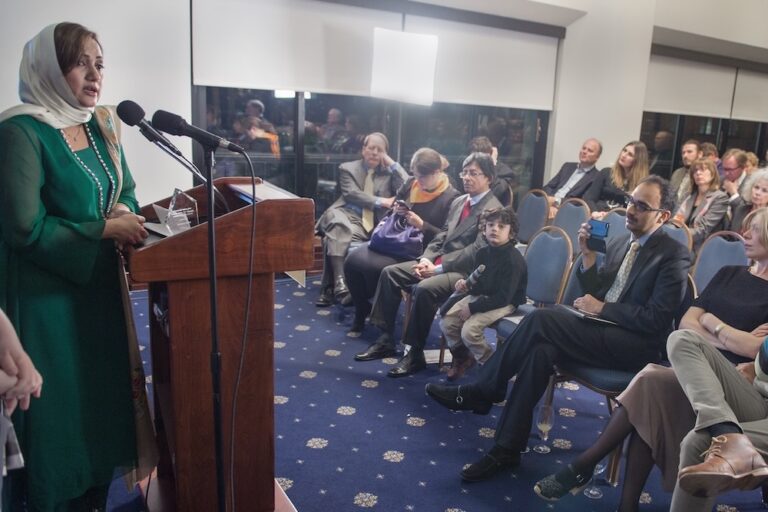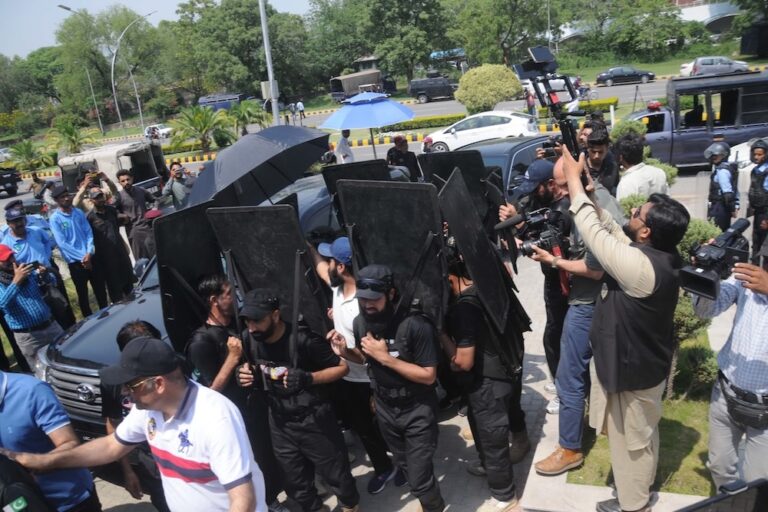(RSF/IFEX) – In a letter addressed to State Secretary for Information S. Anwar Mahmood, RSF again expressed its concern after foreign and Pakistani journalists were prevented from working in the country. “Pakistani authorities must guarantee the freedom of movement of international reporters and free access to the border and Afghan refugee camps,” said RSF Secretary-General […]
(RSF/IFEX) – In a letter addressed to State Secretary for Information S. Anwar Mahmood, RSF again expressed its concern after foreign and Pakistani journalists were prevented from working in the country. “Pakistani authorities must guarantee the freedom of movement of international reporters and free access to the border and Afghan refugee camps,” said RSF Secretary-General Robert Ménard. RSF asked the minister to clarify his policy against the foreign press. “Is it possible to provide visas and then ban reporters from moving around the country?” asked the organisation.
According to information obtained by RSF, as of 18 September 2001, journalists require official authorisation to enter the Afghan refugee camps along the border and near Peshawar (northwest of the country). However, hardly any passes were given to the reporters who requested them. An Irish television crew was briefly detained on 25 September after they filmed a refugee camp near Peshawar. According to the Pakistani journalist who accompanied them, police only confiscated some pages from their notebooks. The same day, members of a team from the American television station CNN, led by Asia correspondent Mike Chinoy, were briefly interrogated by an officer from the paramilitary group Frontier Corps. The US journalists were returning from the frontier zone of Mohmand Agency. In addition, a television crew from the French station TF1 were denied access to Darra Adamkhel, a region located about twenty-five kilometres from Peshawar known for harbouring arms factories. Authorities have severely restricted access to this zone. Finally, police briefly arrested a Japanese television crew when they tried to return to the Afghanistan border.
According to Eric Albert, a special correspondent for the daily “France Soir”, a member of the security forces prohibited him from parking on a road alongside a refugee camp. “He pushed me in my car while I was doing nothing more than watching the camp,” said the journalist. A foreign reporter, working in Peshawar, told RSF that it has become “very difficult to work because the authorities refuse to grant authorisations. It is now impossible for us to access areas where we can find information. We are not here to visit the city.”
Since 20 September, Pakistani authorities have not granted any visas to Indian journalists who wanted to cover the consequences of the crisis between the USA and the Taliban.
RSF has not registered any attacks on foreign journalists by Pakistani fundamentalists, who frequently demonstrate on the streets of the main Pakistani cities. On 24 September, however, students of the Koranic School of Nowshera (in north western Pakistan) threatened to destroy the cameras of foreign journalists who were visiting their school. According to the daily “Dawn”, students of Jamia Darul Uloom Haqqania complained to the administration about the “presence of female journalists.”
In Afghanistan, following the expulsion of the CNN correspondent by the Taliban, the crew from the Arabic television station Al-Jazeera is the only one left in the country. The two correspondents of the news station, based in Qatar, are authorised by the Kabul regime to work in certain zones of Afghanistan. In 1998, Al-Jazeera broadcast an interview with Ossama bin Laden. On 24 September, bin Laden addressed correspondents of the Arabic station in Kabul calling on the Pakistani people to “drive back” the American troops.
“The Taliban and the Media”, a report published by RSF, is available at www.rsf.org.


